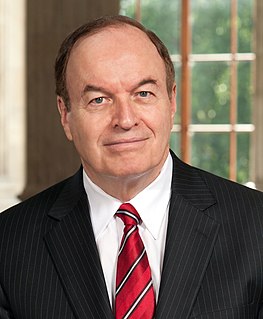A Quote by Seth Moulton
I voted against H.R. 4293, the Stress Test Improvement Act of 2017, which would modify the regulatory oversight of certain financial institutions in a way that is likely to expose our economy to greater risk.
Related Quotes
To restore confidence in our markets and our financial institutions so they can fuel continued growth and prosperity, we must address the underlying problem. The federal government must implement a program to remove these illiquid assets that are weighing down our financial institutions and threatening our economy.
The global financial crisis is a great opportunity to showcase and propagate both causal and moral institutional analysis. The crisis shows major flaws in the way the US financial system is regulated and, more importantly, in our political system, which is essentially a bazaar of legalized bribery where financial institutions can buy themselves the governmental regulations they want, along with the regulators who routinely receive lucrative jobs in the industry whose oversight had formerly been their responsibility, the so-called revolving-door practice.
We also must pull from our highest ideals of justice and protect against those ills that destabilized our economy - like predatory lending, over-leveraged financial institutions and the unchecked avarice of the past that trumped fairness and common sense. Our platform calls for significant cuts in federal spending.




























